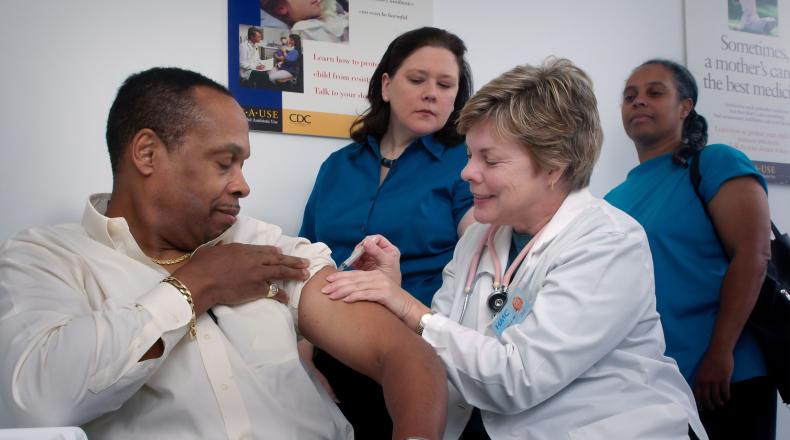AFP Statement Regarding “Grateful Patient” Fundraising and Bonuses For Donor/Patient Referrals

Such Situations Create Unacceptable Conflicts of Interest and Violate Fundraising Ethics
(Arlington, VA) The Association of Fundraising Professionals (AFP), the largest community of charities and fundraisers in the world, has released the following statement from President and CEO Mike Geiger, MBA, CPA, regarding the ethics of “grateful patient” fundraising in healthcare institutions and requiring doctors to refer patients to the fundraising department and/or basing salaries and bonuses on the number of referrals.
At a time when hospitals and other healthcare providers are relying more heavily on charitable contributions—and when the COVID-19 pandemic has both magnified funding issues and raised concerns about major donors receiving preferential treatment in receiving vaccinations—it is a timely reminder that healthcare-related charities must adhere to strict ethical guidelines in their “grateful patient” fundraising programs. Recent headlines about hospital systems offering bonuses for departments or doctors who refer patients as potential donors, or requiring a minimum number of referrals each month, create mistrust in charitable institutions and violate ethical fundraising standards.
“Grateful patient” fundraising must be ethical and is often a critical part of an organization’s fundraising initiatives. Appreciative patients who have benefitted, or seen their families, friends and colleagues benefit, from services offered by any kind of charity are often likely to give to that charity. Charities can and should have discussions with these individuals, but only in the appropriate and ethical manner and time.
However, the doctor-patient relationship is one of the most sensitive and critical relationships a person may have, and inserting fundraising and giving into the equation is fraught with ethical peril. The American Medical Associations’ own code of ethics states that doctors should “refrain from directly soliciting contributions from their own patients, especially during clinical encounters.”
Doctors can be part of the fundraising process in certain circumstances—such as passing along information to the fundraising professionals when patients have expressed interest in giving back, sending a thank-you letter for a contribution that has been received, or providing periodic updates related to their research projects: all constitute appropriate participation in the philanthropic process.
However, creating a system that requires a certain number of patient referrals by a doctor to the fundraising department each month or year, or that bases salaries or monetary rewards on such referrals, violates several standards of AFP’s Code of Ethics, including:
- Members shall not engage in activities that harm the members’ organizations, clients or profession or knowingly bring the profession into disrepute.
- Members shall not engage in activities that conflict with their fiduciary, ethical and legal obligations to their organizations, clients or profession.
- Members shall effectively disclose all potential and actual conflicts of interest; such disclosure does not preclude or imply ethical impropriety.
- Members shall not exploit any relationship with a donor, prospect, volunteer, client or employee for the benefit of the members or the members’ organizations.
- Members shall comply with all applicable local, state, provincial and federal civil and criminal laws.
The program must also adhere to federal and state privacy laws related to the type of patient information that is sent to the fundraising department. Doctors and fundraising professionals should continue to adhere to the guidelines provided by the Health Insurance Portability and Accountability Act (HIPAA) set forth by the U.S. Department of Health and Human Services.
Requiring referrals, or basing salaries or bonuses on referrals, runs the risk of creating a conflict between a doctor’s interest in a patient’s medical care and outcomes, and their interest in securing a philanthropic referral or gift from the patient. This situation is unethical and should not be part of any “grateful patient” program.
In addition, AFP’s code, the only enforceable code in the fundraising profession, prohibits fundraisers from using commissions or percentage-based compensation for soliciting or receiving charitable gifts. Creating financial incentives for patient referrals and gifts violates these standards as well.
Above all, donor intent and donor privacy should be paramount in grateful patient and other fundraising programs, as outlined in AFP’s Code of Ethics. Donor intent in the “grateful patient” context means that charities cannot assume what individuals want or that all patients want to give to the organization. If a patient has suggested proactively giving to the charity, then the doctor can explain that further conversations about philanthropy should occur with the fundraising team and then pass along the patient’s contact information.
Donor privacy means that the doctor should only pass along basic information needed to contact the patient, begin a conversation and eventually make a solicitation. While privacy regulations related to the HIPAA allow for the disclosure of certain types of health information for fundraising purposes, such disclosure could be considered unethical depending on donor expectations of privacy and confidentiality. The AMA’s own code of ethics notes that doctors should “obtain permission from the patient before releasing information for purposes of fundraising when the nature of the physician’s practice could make it possible to identify the medical services provided or the patient's diagnosis.”
Grateful patient programs can be incredibly rewarding for both the charity, the donor and the community. The charity receives funding to continue its critically needed programs for the community, the donor gets to “give back” and feel good about helping others in similar situations, and the community benefits from financially strong charities able to continue to provide important services. All healthcare organizations with “grateful patient” programs, or those that are considering such programs, should review their program guidelines and ensure they follow the highest ethical safeguards and always make patient/donor privacy and confidentiality the highest priorities.

